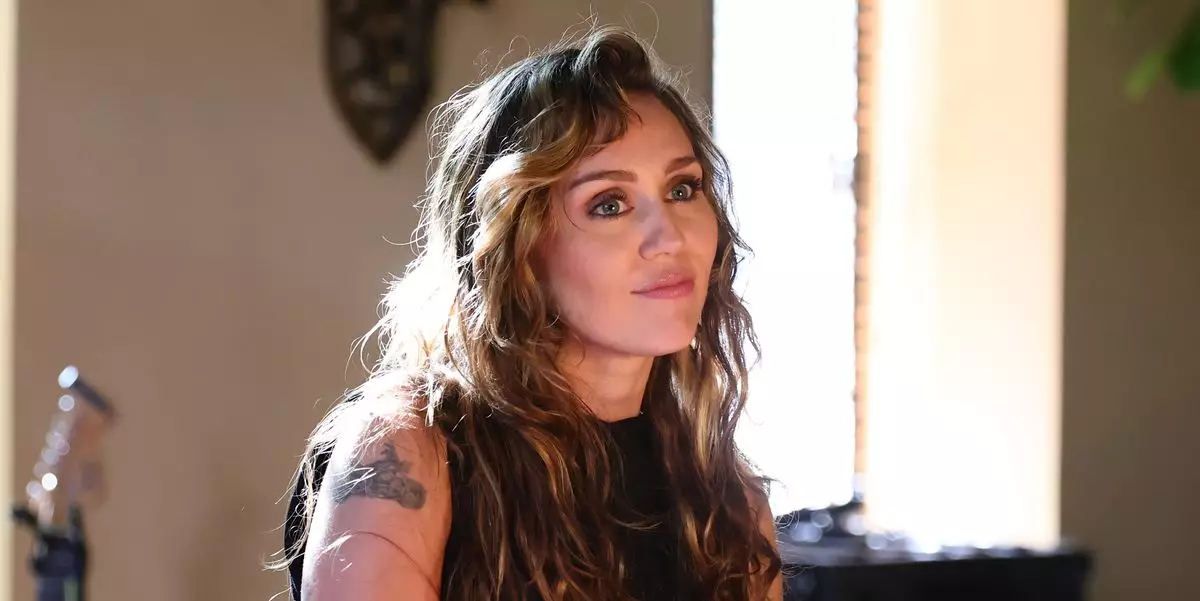In a revealing episode of The Interview podcast hosted by Lulu Garcia-Navarro, Miley Cyrus articulated her unorthodox journey through the entertainment industry, providing an intimate glimpse into her evolution from child star to a self-aware artist. Unlike many of her contemporaries who seem compelled to diversify their portfolios with product lines, such as makeup or beauty, Cyrus stands firmly apart. This decision is not merely a business move; rather, it reflects a deeper understanding of her identity and passions. Cyrus candidly shared a moment with her stepfather, who queried her lack of a makeup line, prompting Cyrus to respond with an assertion of authenticity: “That’s not my passion.” This statement encapsulates a core philosophy that drives her career choices—a commitment to genuineness over commercialism.
The Weight of Motherhood
Cyrus’s musings extended beyond her career, touching upon the weighty topic of motherhood. She expressed a candid ambivalence about the responsibilities and sacrifices tied to parenthood, drawing parallels to her approach to artistry. “It’s a lot of responsibility and devotion,” she said, expressing apprehension about the sleepless nights and emotional labor that come with raising children. By linking her artistic choices to her thoughts on motherhood, Cyrus demonstrates a profound understanding of personal responsibility and the societal pressures often faced by women in the public eye. Her viewpoint challenges the notion that every woman, particularly those in the limelight, must conform to traditional roles—whether in family or career.
Empathy for Fellow Artists
While Cyrus clarifies her stance on motherhood and commercial ventures, she simultaneously embraces her fellow artists with empathy and support. Her friendship with Ariana Grande, who navigates the demanding world of pop with her makeup line r.e.m. beauty, underscores a mutual understanding born from shared experiences. Both artists acknowledge the emotional toll that can accompany child stardom; Cyrus’s endorsement of the necessity for therapy among young performers showcases her commitment to mental health. She advocates for an ongoing dialogue about the challenges of growing up in front of a camera, suggesting that regular check-ins could provide vital support for young talent.
The Dangers of Overwork
In her reflections, Cyrus expressed concern for emerging artists who may find themselves overwhelmed by the industry’s relentless demands. Her instinct to check in on fellow stars, like Sabrina Carpenter, points to a nurturing side that transcends mere camaraderie—it’s a visceral recognition of the dangers of burnout. This notion fosters a culture of compassion rather than competitive rivalry, illuminating a pathway toward a healthier industry dynamic. With Cyrus at the forefront, we are reminded that taking a stand for personal boundaries and mental health is not only courageous but transformative, paving the way for future generations of artists to thrive without sacrificing their well-being.
Through her unfiltered dialogue, Cyrus redefines what it means to be a successful artist, championing authenticity over commercial pressures and encouraging a supportive community among peers. By remaining true to oneself, she inspires others in the industry to carve their own unique paths.


Leave a Reply